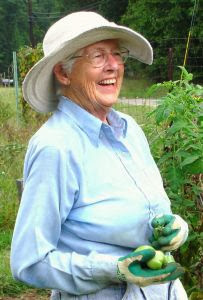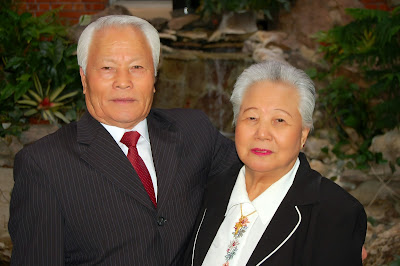Eating well is important for everyone no matter what your age is. Your day-to-day food choices can make a difference in your health as well as your appearance and how you feel.
Eating Better Promotes Good Health
Consuming a well-planned, balanced combination of food every single day has lots of benefits. As an illustration, eating healthy may reduce the risk of heart disease, stroke, diabetes, bone loss, some kinds of cancer, and prevent becoming anemic. If you have any of these diseases, consuming a well-balanced diet and exercising will assist you with staying healthy and enjoy your life. Healthy eating also may help you to reduce hypertension, lower cholesterol levels, and cope with diabetes.
Eating healthy food for seniors will give you the nutritional value necessary to keep your muscular tissues, bones, body organs, and other elements of your body healthful during your life. These nutrients include vitamins, minerals, iron, protein, sugars, fats, and water.
Healthy Food for Seniors Give You a Boost in Energy
 Eating the proper foods helps keep increase your levels of energy, too. By consuming adequate calories, you give your body the fuel it needs every day. The quantity of calories required depends on how old you are, whether you are a woman or man, your weight and height, and exactly how active you might be.
Eating the proper foods helps keep increase your levels of energy, too. By consuming adequate calories, you give your body the fuel it needs every day. The quantity of calories required depends on how old you are, whether you are a woman or man, your weight and height, and exactly how active you might be. Naturally, balanced nutrition is more than counting calorie consumption. There are lots of other aspects to creating a nutritious lifestyle.
Eating healthily 50 plus: What your system needs
Adults that are age 50 and up can be healthier in their future years by selecting healthy food. A well-balanced diet plan combined with exercise will produce a better quality of life and enhance your independence during your elderly years.
Foods from the Food Groups
 Fruit
Fruit Pay more attention to whole fruits rather than fresh fruit juices for more fiber and vitamins. You should target around 1 to 2 servings each day. Eat an apple, banana rut or anything else that rich in color such as berries or melons.
Fresh Vegetables
Color is important in this category. Select antioxidant-containing, leafy vegetables like kale, spinach, and broccoli along with orange and yellow-colored vegetables, such as celery, squash, and yams. Try around 2 servings of fresh cooked or raw vegetables every single day.
Calcium
Maintaining bone tissue health while you age depends on adequate calcium intake in order to avoid weak bones and bone fractures. Seniors need 200 mg of calcium a day by way of portions of milk, low fat yogurt, or cheese. Healthy foods for seniors include non-dairy products such as tofu, broccoli, nuts, and kale.
Whole Grain Cereal: Food for Seniors
Consume carbohydrates wisely and select cereals that do not have over prepared white flour. Select whole grain cereals instead for additional vitamins and much more fiber. If you’re not sure, try to find noodles, breads, and cereals that list “whole” in the ingredients list. Seniors need six to sever ounces of grains each day. Here’s an easy guideline. One slice of bread is equivalent to approximately one ounce.
Your Diet Should Be High in Protein
Senior citizens need an amount of protein that can be calculated at 0.5 grams per pound of your own body weight. Divide your weight in half for an approximate amount you need. A 120 pound woman will need around 60 grams of protein each day. A serving of tuna, for instance, provides about 40 grams of needed protein. Differ your sources with more foods such as fish, peas, nuts, eggs, beans, milk, cheese, and seeds.
Necessary Nutrients
Water
 As we age, some of us are inclined to dehydrate because our bodies lose the capacity to regulate fluid levels as well as the feeling of thirst may not be recognizable. Post a message in your kitchen reminding you to drink water every hour which is sufficient to stop urinary tract infections, and constipation.
As we age, some of us are inclined to dehydrate because our bodies lose the capacity to regulate fluid levels as well as the feeling of thirst may not be recognizable. Post a message in your kitchen reminding you to drink water every hour which is sufficient to stop urinary tract infections, and constipation.Healthy Food for Seniors Should Have Vitamin B
Right after 50, your tummy produces less gastric acid making it challenging to absorb needed vitamin B-12 for your blood circulation and nervous system working properly. Get the recommended daily intake of.4 mcg of B12 from fortified foods or a supplement.
Vitamin D
We get nearly all of our requirements for vitamin D which is essential for absorbing calcium through sun exposure and certain foods such as fish, eggs and milk that has been fortified. With age, the outer skin is less efficient at synthesizing the vitamin, thus you must consult a doctor about supplementing your diet plan fortified foods or even a multivitamin.
Healthy Eating for Seniors: Strategies for Keeping Your Diet Wholesome and Healthy
If you don’t eat foods that are rich with nutrients, your body will feel slow and sluggish by eating significantly less wholesome foods. Here’s how to get into the habit of eating healthy.
 Reduce your salt consumption to help prevent water retention and prevent high blood pressure. Only buy things with the “low sodium” label and also meals using garlic, herbs, and spices instead of sea salt.
Reduce your salt consumption to help prevent water retention and prevent high blood pressure. Only buy things with the “low sodium” label and also meals using garlic, herbs, and spices instead of sea salt.Healthy eating for seniors includes consuming good fats. Reap the rewards of olive oil, avocados, salmon, peanuts, flaxseed, and other monounsaturated fat. Fat from these sources can protect the body against heart disease by controlling “bad” cholesterol levels and raising “good” HDL cholesterol levels.
You need fiber. Don't deal with constipation again, lower the risk of many diseases, and feel fuller faster by significantly increasing your fiber intake. Add raw fruits and vegetables, whole-grains, and beans. They’re easy to cook and they’re delicious.
Stop consuming unhealthy carbs. Bad carbohydrates are foods such as white flour, sugar, and white-colored rice that were stripped of all fibers and nutrients. Undesirable carbs digest quickly and are responsible for a fast increase in blood sugar levels and energy boosts than suddenly disappear. For long-lasting energy and stable levels of insulin, choose “good” or complex carbs such as grain, beans, fruits, as well as green vegetables.
Look for hidden sugar. Some sugar may be added in foods such as baked goods, canned soups as well as vegetables, pasta sauce, instant potatoes, frozen foods, take out, and other items. You need to read the food labels for other terms for sugar. Opt for fresh or frozen vegetables instead of canned goods, and select low-carb or perhaps sugar-free versions of products such as tortillas, cookies, pasta, and ice cream.
You have to cook smart and healthy. The ultimate way to prepare veggies is actually steaming or sautéing in olive oil because these methods keep all of the natural nutrients. Don’t even consider boiling since it drains nutrients.

Healthy Foods for Seniors: An Easy Menu for the Day
Your Morning Meal
Eat high-fiber breads and cereals, multi-colored fruit, and proteins to get energy when you first wake up in the morning. Try yogurt with berries, a veggie omelet, peanut-butter on wholegrain toast and some greens. Even old-fashioned oatmeal with any type of fruit, walnuts, and also honey can make a healthy morning meal.
Afternoon Lunch Break
Keep your body fueled in the afternoon by eating various whole-grain breads, lean proteins, and fiber. Try a grilled vegetable sandwich on wheat bread, stew with whole-wheat noodles, or a quinoa salad together with green peppers and some cheese sprinkled on top. Some crunchy nuts will work well too.
Your Evening Dinner
End your day in a healthy style. Try out salads with warm ingredients such roasted vegetables and a side of crusty brown bread with mozzarella cheese, salmon with a delicious salsa with spices, or whole-wheat pasta with broccoli and grilled chicken. Choose yams as an alternative to regular potatoes and grilled or baked meat as an alternative to fatty, fried foods.
There is also great information on HelpGuide.org for senior's diets.
It's easy right? Healthy foods for seniors are great to maintain health and you can quickly and easily whip something up for any time of day.
Please feel free to share this post with others you think may benefit from it by using the social icons below!











No comments:
Post a Comment